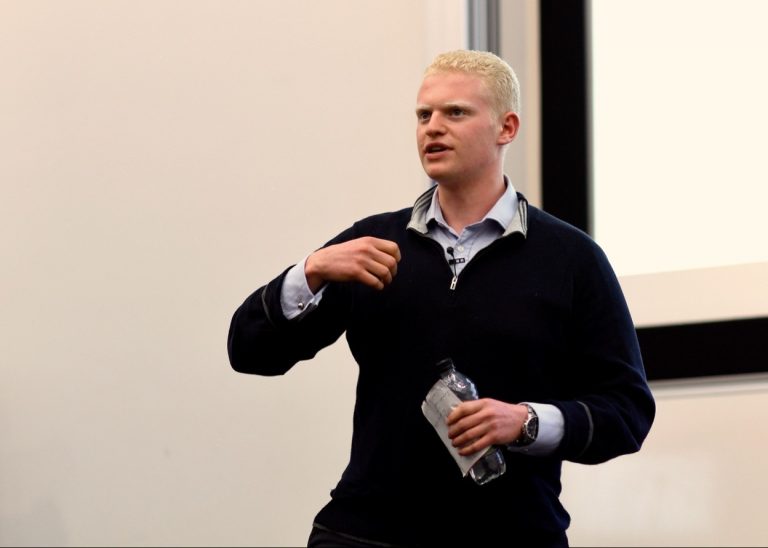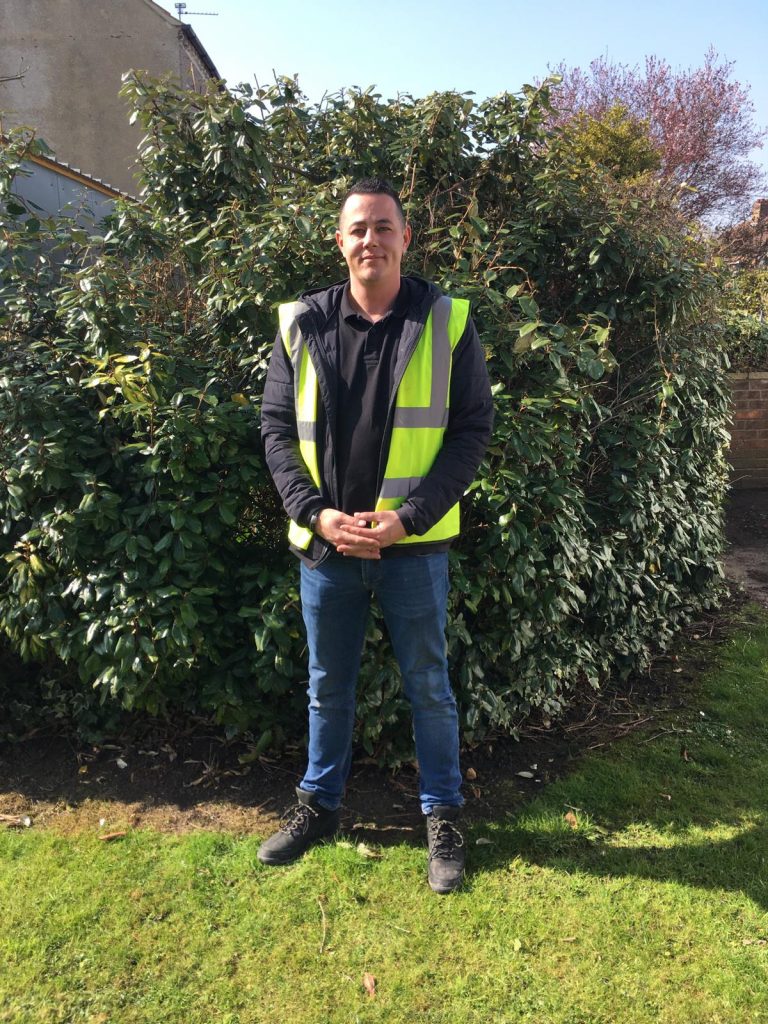Farmers can now claim 2022 BPS payments
The government has opened the application window for the Basic Payment Scheme for farmers to claim for their 2022 payments.
The claim window for customers with existing Countryside Stewardship and Environmental Stewardship revenue agreements has also opened.
Later this year, the Department for Environment, Food and Rural Affairs will open applications for the Lump Sum Exit Scheme, which provides financial support to BPS applicants in England who wish to retire or leave farming in a planned way.
Farmers who are considering applying for the Lump Sum Exit Scheme are encouraged to apply for BPS in 2022 as well as applying for the Lump Sum Exit Scheme later on. The deadline for applications is 16th May.
Creative hub chooses Wakefield for second site
A music-centric creative hub is set to open its second site this summer in Wakefield.
Since its inception in 2011, Tileyard has grown from a compact 10-music studio complex into an ecosystem of over 250 studios, organisations, artists and independent creative industry businesses, including an educational and training facility.
Based in London’s Kings Cross, Tileyard London is home to a plethora of established brands and organisations from the creative sectors of music, film, gaming and new media. Its resident community already includes the likes of Apple Music 1, Noel Gallagher, The Prodigy, 8Bars, Pioneer DJ, Believe Digital, SoundCloud and Spitfire Audio, to name but a few.
Tileyard’s mission to support independent artists and growing businesses recognises that the vast number of opportunities happen when creative industries collaborate within a like-minded, curated community. And now, they’re bringing this vision to the North.
Rutland Mills, a complex of Grade II listed mill buildings in Wakefield, will be the new home of Tileyard North – bridging the gap between the creative industries of the south and north of England. This new inclusive, creative hub will be integral in establishing new business relationships and networks, creating new opportunities and empowering talent in the area – a destination for collaborative partnerships in all facets of the commercial creative sector.
“There is a huge amount of talent in the north, but there’s nothing like Tileyard out of London, so this is the perfect opportunity to bring all that talent together in a central place where they can work together and collaborate,” remarks Paul Kempe, co-founder of Tileyard.
Within the complex, there are plans for workshops and music studios, bars, restaurants and cafes, and event & conference spaces. In addition, the founders of Tileyard have plans to link up with the likes of Channel 4, based in Leeds, with the inclusion of post-production studios at the newly renovated mills.
Tileyard North is set to open this Summer and those already registered to join the community include Musiio, a fast-growing innovative tech start-up that uses Artificial Intelligence to automate music workflows.
The facilities at Tileyard North will also be open for the general public to experience.
Tileyard co-founder Nick Keynes says: “We are looking forward to opening the doors to Tileyard North later this year and hopefully replicate the success of Tileyard London. There is an abundance of talent in the region and our mission is to harness this by creating a home and a place to belong for the game changers and tastemakers of the North.”
Sunny Bank Mills welcomes a mover and a shaker
A flourishing on-line cocktail company, which was set up during the Covid pandemic, is moving into Sunny Bank Mills, the Yorkshire mill complex at Farsley between Leeds and Bradford.
Canvas, which creates experience-led cocktails to enjoy at home, is taking studio space in Sandsgate, the mill’s historic Edwardian office.
During the past ten years Sunny Bank Mills, one of the most famous family-owned mills in Yorkshire, has been transformed into a modern office and mixed-use complex for the 21st century, creating 400 sustainable new jobs.
Jonny Shields, co-owner of Canvas with his partner Jess, explained: “This is a big move for us. We love the mill for the fact that it’s a beautifully curated space, both in terms of the aesthetic, which harks back to days gone by, and also because of the wide range of businesses here.
“Seeing brands such as Amity, the Hip Store and Pampas & Bloom already at Sunny Bank made us feel excited to become a part of the community here and to call the mill our new home. As an online business, set up during the pandemic, we worked remotely from the start, so this move into our new home in Sandsgate is a crucial part of our journey.
“The move will allow us to grow in both production capacity and creativity. We launched at the beginning of last year, making experience-led cocktails at home. Canvas is about the whole experience of a cocktail rather than just the liquid, and so we make cocktails at home feel like cocktails at the bar.
“Each of our cocktails comes with a bespoke video to tell the story of the drink and show how to make it. Each cocktail is also paired with a specific room scent to help elevate the experience at home. In our first year we served over 600 guests, partnered with leading drinks brands like Sipsmith and Aberfeldy, and featured in the likes of Courier Magazine and The Spirits Business.”
John Gaunt, co-owner of Sunny Banks Mills, said: “We are delighted to welcome Canvas to our ever-growing community at Sunny Bank Mills. There’s no doubt that cocktails are incredibly popular these days and Jonny and Jess’s imaginative approach to making cocktails at home and promoting them via video looks like an idea whose time has come. We wish them the very best of luck.”
Student storage business targets growth after £50k grant award
Student focused storage business Kit Keeper has been awarded £50,000 by InnovateUK to develop an AI platform to optimise order processing.
Kit Keeper is a by-the-box storage business dedicated to providing convenient, safe and affordable storage and shipping solutions for university students.
Kit Keeper’s 24-year-old founder Michael McCreadie launched the business five years ago while studying at York University.
Kit Keeper started by focusing solely on the student market, predicted to be a £300 million per year industry in the next five years.
Michael’s ambition is for Kit Keeper to be the leading student storage company in the country by 2025 and he has already formed partnerships with universities in Nottingham, Leeds, Oxford, Brighton, Huddersfield, and York.
InnovateUK’s young innovators program allowed Michael to grow his team and scale it into a national leader.
Kit Keeper are now using the government grant to develop their backend order processing system to optimise for environmentally friendly couriers, an innovation in the traditionally high-carbon emitting storage industry.
Michael said: “I’m extremely proud of how far we’ve come. I started Kit Keeper by myself at university, we’re now a team of six in the head office and expanding to 10 in May.
“It’s been great watching the company and the people grow. We have an amazing team and with great backers such as InnovateUK and The University of York I’m excited to continue on our expansion journey.
“It’s an incredibly exciting time at Kit Keeper. The award of this grant is enabling us to scale up the business and challenge the market.
“Kit Keeper’s unique environment-first ethos and superior operational technology makes us a novelty in the market and highly desirable to customers over potential competitors.”
Four promotions projected to help Watson Batty beyond £2.8m turnover
Watson Batty Architects, which has offices in Leeds and Loughborough, has made four high-level promotions.
Robert Jagger has been promoted to Associate Director with a remit to grow the already established residential and specialist living sector portfolio at Watson Batty. Robert has over 16 years’ in-depth experience in both sectors and will work closely with registered providers, contractors, and local authorities to deliver innovative design solutions. He will also continue to lead on maintaining standards across the practice including Revit software and BIM Level 2 compliance.
Rob Cundy has been promoted to Associate and will assist in developing business across higher education whilst helping to mentor younger architects through qualifications and career path development. Rob has over 22 years’ industry experience working with both private and public sectors and has designed complex projects for Durham, Newcastle, and Leeds Beckett Universities
Gemma Bottomley is also promoted to Associate, primarily working across the specialist living sector and helping to develop the interior design service at Watson Batty. Gemma, who has 14 years multi sector experience, will also lead on dementia design compliance across the practice and is developing schemes towards gold standard University of Stirling Dementia Design Accreditation.
David Whalley also becomes an Associate, further developing the large-scale master planning expertise at Watson Batty. With 22 years’ industry experience focused on the living and specialist living sectors, David will help grow the PRS and student residential sectors and ensure that the practice is at the forefront of fast-moving technological advancements in the industry. He is also part of the practices’ sustainability taskforce in response to the climate crisis and commitment to the RIBA Climate Challenge.
Watson Batty Architects employs a team of 35 across studios in Leeds and Loughborough, and expects to surpass its £2.8m turnover targets by around 7% by April year end.
MD Peter White said: “These well-deserved promotions represent the future of Watson Batty and have proved themselves to be at the forefront of design innovation and aspiring leaders in their respective sectors.
“With a strong business pipeline and robust and incentivised team in place, we are pushing forward with a business priority on sustainability as we face the urgency of the Climate Crisis. We have established a sustainability taskforce to address this and to guide our clients on how to design and deliver buildings on the journey to net zero. Our principles look to drive change within the industry in sustainability as well as fire safety, modern methods of construction and inclusive design.”
Green upgrade project hits half-way mark in Leeds
Work to spend more than £25m on green upgrades across 40 public buildings in Leeds has hit a significant milestone with confirmation that installation work is finished at more than half of the sites – with almost 30 jobs created.
Eight leisure centres, twelve primary schools, four homes for older people, two popular attractions, four civic buildings, a children’s centre, a community hub, and six other council-owned buildings across the city are all receiving upgrades.
When work completes in June the scheme is expected to have reduced the city’s carbon footprint by more than 4,000 tonnes each year.
More than 7,500 solar photovoltaic panels are being installed as part of the programme. The panels mean that dozens of council buildings will soon become part—or on good days fully—powered by local renewable electricity, helping to reduce the council’s reliance on increasingly expensive and less clean energy imported from the national networks.
61 new heat pumps and four new connections to the low carbon Leeds PIPES district heating network will also reduce the council’s use of gas combustion boilers, helping the authority save money and improve local air quality.
Leeds City Council bid for the funding last year as part of the ‘Public Sector Decarbonisation Scheme’ from the Department for Business, Energy and Industrial Strategy.
The programme has helped to stimulate and create skilled local jobs in Leeds’ growing green economy. Because of the council’s investment in sustainable heating, Cenergist, a key private sector partner recruited 27 new staff in Leeds and opened in first office in the city.
Colin James Lewis, Leader of Leeds City Council said:“Leisure centres play a key role in Leeds’s sporting life, we are proud of their track record of inspiring and training the next generation of sporting stars, as well as helping residents to live healthier, more active lifestyles.
“It is really pleasing to see the progress being made across the city through the Public Sector Decarbonisation Scheme and I look forward to seeing the schemes impact on tackling the climate emergency.”
Business Lincolnshire launches new podcast series today
Business Lincolnshire is partnering with CDI Alliance to produce a new podcast series going live today.
The Fit for Business series will focus on upskilling current business owners and those who are thinking about starting their own company.
Sessions will span everything from the name of your business, legal structures, how to create a business plan, and much more. Guy Lewis, co-director at the CDI Alliance and the podcast’s host, is passionate about helping SMEs become more profitable by using technology. The bi-weekly series will feature a different guest each week, specialising in a particular subject area.
Guy says: “With the podcast, we want people to be able to absorb the knowledge and information we’re featuring in a way and at a time that suits them. We want it to get them to a position where they feel they need more than this, and from there we’d encourage them to reach out to us, to go to a masterclass, or ask questions of the advisors pertinent to their particular businesses.
He added: “We want to help businesses get the information they want, and get them to their next stage, whatever that may look like.”
The Fit for Business podcast will be available anywhere you stream your podcasts.
Businesses must take a holistic view of diversity to truly embed real change, the McKenzie-Delis Review warns
While some of the UK’s biggest companies are increasing their focus on workforce diversity and inclusion, many have barely begun to embed real change on areas such as sexual orientation, race and disability, the McKenzie-Delis Review finds.
The annual review – conducted in partnership with IPSOS and supported through strategic partner KPMG – is the largest of its kind in the UK with 89 companies participating this year.
It measures 10 facets of workplace diversity and inclusion (D&I) beyond gender and ethnicity, helping companies assess sexual orientation, disability, age, religion, nationality, socioeconomic status, mental health and wellbeing, and parenthood.
First launched in 2020, this year’s review sheds light on the complex challenges facing employers post-pandemic. Encouragingly, the business case for D&I is recognised as being stronger than ever, with companies starting to actively track their progress to demonstrate if, and how, they are embedding change.
Leila McKenzie-Delis, CEO of D&I accelerator DIAL Global and Founder of the McKenzie-Delis Foundation, a charity committed to driving research and insight into workplace equality, said: “This year’s review showed some very encouraging aspects, and that UK plc is making progress, which we welcome. But when you break down each of the ten facets, it’s clear that there is still a long way to go.
“Firms are beginning to see that tracking and measuring D&I seriously, as they do every other aspect of their business, is imperative to ensuring strong business performance. Additionally, it means they will see their reputation among current and prospective employees, customers and shareholders improve.
“Some companies are already doing good things and are committed to measuring their progress. But there are others that haven’t done enough or even scratched the surface – particularly those businesses that still do not measure all the facets of D&I.
“Let us be in no doubt – the UK’s biggest companies have a responsibility to lead by example and we need to see more organisations blazing a trail to move the dial and lead the way. It’s an ongoing challenge, but one we are determined to tackle.”
The report also found that just a quarter of businesses have LGBTQ+ representation on their leadership team; ethnic minority representation in senior leadership positions remains low, and companies are still struggling to increase the representation of those living with disabilities.
A total of 89 businesses participated in this year’s McKenzie-Delis Review, making it the largest yet. Unilever, Diageo, Royal Mail, Boots, Co-op, Page Group, Marks & Spencer, Jaguar Land Rover, Network Rail, Britvic, O2 Virgin, Superdrug, Tate & Lyle and The FA, were among those that took part.
Bina Mehta, Co-chair of the McKenzie-Delis Review, and Chair of KPMG in the UK said: “Organisations that place inclusion, diversity and equity at the heart of their business strategy have a competitive advantage. They benefit from fresh thinking and different perspectives, which ultimately translates into better business outcomes – it’s good for business and it’s good for society.
“The McKenzie-Delis Review takes a much-needed holistic approach to inclusion, diversity and equity, placing a spotlight on the many facets of diversity – not just gender or ethnicity. The collection of quality workforce data may reveal uncomfortable truths but it’s the critical first step towards turning the dial on diversity. It’s only by embracing the uniqueness which comes from experience and background that open and inclusive cultures can truly become a reality.”
The key findings & recommendations:
The ten facets were ranked in order of how well they were monitored and addressed by UK firms, with nationality, religion, and mental health and wellbeing scoring highly.
- Mental health and wellbeing was ranked the top facet, with the survey finding four in five had a relevant strategy in place, and 93% were keen to support employees with access to quality care.
- However, among the lowest-ranked facets for UK employers was sexual orientation – rated tenth and even considered by some companies to still be a “taboo topic”. The report found that currently, a quarter of firms have LGBTQ+ representation on their leadership team, with less than 40% having approved an LGBTQ+ strategy in the past 12 months. A total of 37% of firms did not know if they had a member of the LGBTQ+ community in their senior leadership team.
- The key findings also included how one in three firms were actively looking to promote or hire staff with disabilities. It highlighted businesses’ “lack of understanding and appreciation of the unique skillset and experiences people with disabilities bring to the organisation”.
- On race, the report found that companies had generally performed poorly relative to other facets. Leadership teams and boards are still predominantly white, with two fifths having no ethnic minority representation whatsoever – and where there is ethnic minority diversity at the top, just 14% of senior leaders and 21% of board members are from an ethnic minority background.
Filstorage appointments Installations Manager to its growing team
Racking and fit out specialist Filstorage has appointment a new Installation Manager to its growing team.
Richard Sowden, 39, brings more than 20 years’ experience to the role, which will see him oversee Filstorage’s installation teams at builders’ merchants, factories, and warehouse and logistics facilities across the UK.
Mr Sowden started his career AK Store Fitters in Wakefield in 2001, supervising the installation of shelving and racking in retail stores.
Over the following years, he progressed to become an installations coordinator and then manager at several big-named companies, before joining Filstorage earlier this year.
Mr Sowden said he was looking forward to utilising the skills and insight he had gained over the past 20 years to drive efficiencies in installations.
As well as overseeing installation teams, he will also be responsible for health & safety onsite and producing the Risk Assessment Method Statements (RAMS) for each job.
Mr Sowden said: “Ensuring a smooth installation is key to meeting a client’s expectations and ensuring they can get into the building at the earliest opportunity and become fully operational.
“My role is to make sure this is carried out efficiently and most of all, safely, at every site Filstorage is working on.
“With the large presence across the UK Filstorage has, it is going to be a challenging role, but with some great projects in the pipeline, it is one I am very much looking forward to.”
Mr Sowden’s appointment comes hot on the heels of another hire by the Yorkshire-based company.
Ruth Bill has also recently joined Filstorage as an executive PA to the managing director and wider management team.
Managing Director Paul Taylor welcome both recruits to the business.
He said: “As we continue to grow across the range of sectors we service, ensuring the quality of work we have built our reputation on remains high is a key priority for us.
“These strategic appointments will help to achieve that. Richard’s wealth of experience will bring greater efficiencies to our installations processes, which is a win-win for us and the client, and Ruth will support the management team in taking the business forward.
“I’m very pleased with these appointments and I would like to welcome them both to the team.”
JJ Chalmers gets behind plastics recycling campaign
BBC presenter JJ Chalmers is fringing a new plastics recycling campaign designed to tackle one of the ‘last plastics’ in our bins alongside 4,000 UK supermarkets.
The campaign is addressing a common problem experienced across the UK – the thousands of tonnes of plastic bags and wrapping which not currently collected for recycling at kerbside and are lost to landfill.
Although more than 84% of local authorities collecting plastic bottles, tubs, pots and trays at kerbside for many UK residents, fewer than 20% collect plastic bags and wrappings – accounting for around 290,000 tonnes of plastic wrapping going in UK bins each year.
More than 4,000 UK supermarkets across the UK have now introduced recycling collection points within store for these bags and wrapping.
JJ Chalmers said: “It’s a passion of mine to keep stuff like plastics in use and out of the environment – that’s why I do a lot of work on upcycling. So, I think it’s fantastic that we can now gather up our plastic bags, wrapping, and films, and bring them back to the store each time we shop. It’s a simple habit that will make a huge difference to our impact on the natural environment.”
The awareness-raising campaign, which runs until 11th April, will help reduce widespread confusion over what to do with these plastic items that very often contaminate collections.
Sarah Clayton, Head of Recycle Now and Clear on Plastics,said: “Recycling is a growing success story in the UK, with most people now routinely recycling. But, if you look inside people’s bins today there remains one stubborn plastic that most of us can’t recycle at home –items like bread bags, chocolate wrappers, crisp packets and toilet roll wrapping.
“That’s why we’ve set out to raise awareness and nudge people towards new behaviours by helping them find their nearest recycling point from more than 4,000 supermarket options open to them on the Recycling Locator. It’s simply a case of bagging up your used items and taking them to your local participating supermarket when you next go shopping – and Repeat the Cycle!”
Participating supermarkets include Tesco, Co-op and Sainsburys with other major retailers on the cusp of rolling out services, or currently trialling options. The campaign is also supported by local authorities and UK governments.
James Bull, Tesco’s Head of Packaging, said: “We believe no plastic packaging should end up as waste but soft plastic packaging plays an important role in prolonging the shelf-life of some products and preventing food waste. So, while we’re continually working to reduce our use of soft plastic, we can’t get rid of it altogether just yet. Soft plastic collections combined with promotional initiatives like ‘Repeat the Cycle’ are essential to help prevent these materials from going to landfill.”












